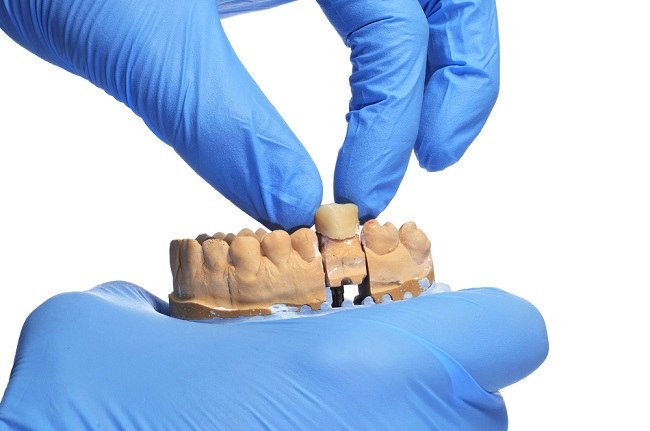Azoospermia is a medical term to describe the condition of not finding sperm in the semen when a man ejaculates. This condition is one of the causes of infertility, especially for newly married couples and planning to have children.
Azoospermia is a male fertility problem that is quite common. From about 10% of cases of infertility or infertility in men, at least 1% of these cases are caused by azoospermic conditions.

As an illustration, from every 50,000 men, there are probably about 5,000 men who experience infertility and 500 of them are caused by azoospermia.
The condition of the absence of sperm causes the fertilization process cannot take place and pregnancy will not occur.
Various Causes of Azoospermia
Sperm are produced in the testes, then enter the male reproductive tract to join the semen. Pregnancy occurs when semen containing sperm enters the uterus and fertilizes an egg.
However, in azoospermic conditions, the semen that comes out when a man ejaculates does not contain sperm at all. Based on the cause, azoospermia can be divided into 2 types, namely:
Nonobstructive azoospermia
This type of azoospermia condition can be caused by hormonal disorders that make men unable to produce sperm or an abnormality in the testes. This hormonal disorder can occur due to several conditions, including hypogonadism, hyperprolactinemia, and Kallmann syndrome.
Meanwhile, azoospermia due to problems in the testes can be caused by abnormalities in the function or structure of the testes. Azoospermia due to abnormalities in the testes can occur due to several conditions, including:
- absence of testes (anorchia)
- Testes fail to produce spermSertoli cell only syndrome)
- Testicular torsion
- Tumor or testicular cancer
- Varicocele
- Genetic disorders
- Drug side effects
- Certain diseases, such as diabetes and kidney failure
Obstructive azoospermia
This type of azoospermia is caused by disorders of the male reproductive tract, so sperm cannot be removed during ejaculation. Obstructive azoospermia can be caused by various things, such as epididymitis and retrograde ejaculation, which is a condition when semen does not flow out of the penis, but into the urinary tract.
In addition, obstructive azoospermia can also occur due to injury or the formation of scar tissue in the sperm ducts and vasectomy procedures.
Recognize the Symptoms of Azoospermia
Many men do not realize that they have azoospermia, because this condition generally does not cause typical symptoms. This condition is only suspected to occur when the partner has difficulty conceiving, even though they have had sex regularly.
In healthy couples of reproductive age, the chances of pregnancy will be higher within a few months to about 1 year after regular sex.
However, if you still haven't had a baby after planning a pregnancy for 1 year or more, you and your partner should check your fertility condition with your doctor. This fertility problem could be caused by azoospermia.
Although there can be no symptoms, men who experience azoospermia due to certain conditions may also experience some of the following symptoms:
- Low sex drive
- Little semen volume
- Erectile dysfunction
- Lumps, swelling, or discomfort around the testicles
- Reduced hair around the face or body
- Hip pain
- Pain when urinating
Various Tests to Diagnose Azoospermia
To diagnose the condition of azoospermia and determine the cause, it is necessary to have an examination by a doctor. The doctor will perform a physical examination and supporting tests in the form of sperm and semen analysis to diagnose azoospermia.
The diagnosis of azoospermia can generally only be confirmed after the patient undergoes 2 sperm analysis examinations by the doctor and the results show that there is no sperm in the semen.
In addition to going through a semen examination, the doctor will also study your medical history, such as illnesses you've had as a child, infections you've had, medications you've taken, and a family history of infertility.
Supportive tests that may also be needed to confirm the diagnosis include:
- Blood tests, to evaluate hormone levels or genetic conditions
- Ultrasound, to examine the male reproductive organs, such as the scrotum and testes
- CT scan of the brain, to look for problems with the hypothalamus or the pituitary gland, which plays a role in producing male fertility hormones
- Biopsy, to check the condition of testicular tissue
How to Treat Azoospermia
Treatment for azoospermia can vary depending on the underlying cause. However, in general, doctors can provide the following treatment steps to treat azoospermia:
Hormone therapy
Doctors can give drugs or hormone therapy to increase levels of the hormone testosterone, which plays a role in sperm formation. By giving these hormones, it is hoped that the number of sperm produced will increase so that the chances of fertilization will be higher.
Reversal vasectomy
A reversal vasectomy is performed to restore the fertility of men who have previously had a vasectomy. This procedure involves reconnecting the vas deferens tubes that carry sperm from the testes to pass through the semen.
Operation
There are various types of surgery to treat azoospermia, both non-invasive with small incisions and invasive with large incisions, including:
- MicroTESE, which is a procedure to take sperm through a small incision in the testicle which will later be used for IVF procedures
- TURED, which is a procedure performed with the help of a camera to remove blockages in the male reproductive tract, so that sperm can join the semen
- Scar correction, which aims to open blockages due to scar tissue caused by sexually transmitted diseases (STDs)
In addition to undergoing treatment from a doctor, you are also advised to adopt a healthy diet, get enough rest, drink enough water, avoid stress, and exercise regularly to increase fertility.
Azoospermia may be a frightening specter for men who want to have children. However, with proper treatment, azoospermic sufferers still have hope of producing offspring.
If you have fertility problems that may be caused by azoospermia, consult a doctor immediately so that they can be examined and treated.









